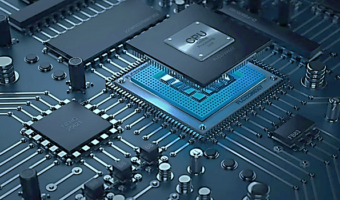About This Course
An Embedded Systems Engineer specializes in creating and implementing software for embedded systems, which are computing systems that are designed to perform dedicated functions or tasks within a larger system. Unlike general-purpose computers, embedded systems are optimized for a specific application and are often part of devices like smartphones, medical machines, automotive systems, household appliances, robots, and more.
Embedded Systems Engineer works at the intersection of hardware and software, ensuring that embedded devices function reliably and efficiently. The nature of embedded systems, which can range from simple household devices to complex spacecraft systems, offers a diverse and challenging career path for engineers in this domain.
This diploma in Embedded Software Engineering is suitable for individuals keen on specializing in the specific domain of embedded systems and wishing to build a career around designing, developing, testing, or maintaining embedded software.
Tags
Target Audience
- Recent Graduates in Electronics or Computer Science: Fresh out of undergraduate programs in electronics, computer science, or related fields, and looking to specialize in embedded software.
- Hardware Engineers: Professionals who have primarily worked on the hardware side of electronics but wish to gain a deeper understanding of the software that drives the hardware.
- Software Developers: Professionals with a background in general software development who want to transition into embedded software, which has its unique set of challenges and requires knowledge of both software and hardware.
- IT Professionals: Those keen on diversifying their skillset or looking to move into a more niche field of technology.
- Technicians and Diploma Holders: Individuals with diplomas or certifications in electronics, telecommunications, or related fields and looking to upskill and move into software roles.
- Career Changers: Individuals from other domains or industries who have a foundational understanding of electronics or programming and are looking to switch careers.
- Enthusiasts and Hobbyists: People who have been working on DIY electronics projects, tinkering with platforms like Arduino or Raspberry Pi, and wish to formalize their knowledge and potentially transition into professional roles.
- Students: Those in their final years of undergraduate programs and looking to enhance their employability by gaining specialized skills before entering the job market.
Curriculum
52 Lessons240h
Introduction to Embedded Systems (5 hours)
What are embedded systems?
Applications of embedded systems
Differences between general computing systems and embedded systems
Basics of Electronics (10 hours)
Digital Electronics: Gates, Flip-Flops, Clocks
Analog Electronics: Basics of OP-Amps, ADCs, and DACs
Interfacing Techniques
Microcontrollers and Microprocessors (20 hours)
Understanding architecture: Harvard vs. Von Neumann
Introduction to popular families (AVR, ARM, PIC, etc.)
Basic interfacing: GPIO, Interrupts
Programming Fundamentals (15 hours)
C Programming for embedded systems
Data structures relevant for embedded systems
Basic algorithms in embedded context
RTOS (Real-Time Operating Systems) (20 hours)
Basics of RTOS
Task management, Scheduling, IPC (Inter Process Communication)
Hands-on with a popular RTOS (like FreeRTOS, VxWorks, etc.)
Embedded C and Advanced Programming (20 hours)
Embedded C conventions and practices
Memory management in embedded systems
Interrupt handling and service routines
Multithreading and multitasking
C++ (40 hours)
Introduction to object oriented programming
Procedural Approach in C++
Object oriented approach in C++
Constructors and Destructors
Copy Constructors
Friends and operator overloading
Generic Programming
Generalization
Run Time Polymorphism
Exception Handling
Multithreading
Device Drivers and Middleware (20 hours)
Understanding Device Drivers
Writing basic device drivers for peripherals (UART, SPI, I2C, etc.)
Introduction to middleware
Embedded Software Design Patterns (10 hours)
Importance of design patterns
Common embedded software design patterns
Version Control and Software Life Cycle (10 hours)
Basics of Git
Software life cycle in embedded systems
Agile for embedded software development
Protocols and Communication (15 hours)
UART, SPI, I2C basics
Introduction to wireless protocols: Bluetooth, Zigbee, WiFi
Testing and Debugging (15 hours)
Software debugging techniques: static analysis, dynamic analysis
Hardware debugging tools: Oscilloscopes, Logic Analyzers
Unit testing in embedded systems
Safety and Security in Embedded Systems (15 hours)
Safety-critical systems (Medical, Automotive, etc.)
Basics of encryption and security in embedded
Secure coding practices
Advanced Topics (10 hours)
FPGA basics
DSP in embedded systems
IoT in embedded systems
Project Work and Practical Application (20 hours)
Soft Skills and Interview Preparation (5 hours)
Resume building
Mock interviews
Soft skills for corporate communication
Your Instructors

₹59,558.00
Level
Intermediate
Duration
240 hours
Lectures
52 lectures
Subject
Language
English



